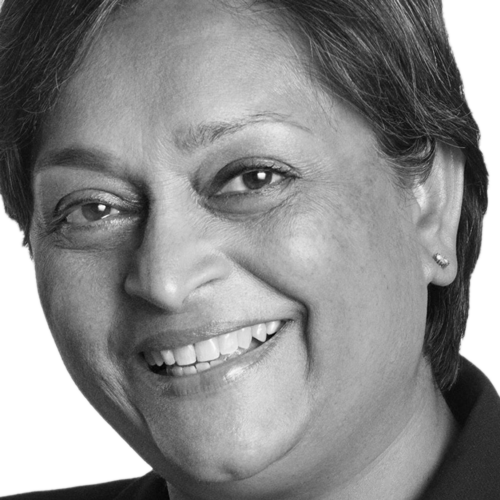Speakers
‹ Back
Professor Quarraisha Abdool Karim
Associate Scientific Director, Centre for the AIDS Program of Research in South Africa (CAPRISA)
CV
Quarraisha Abdool Karim, PhD, is an infectious diseases epidemiologist, Associate Scientific Director of CAPRISA and PI of the CAPRISA Clinical Trials Unit. Her experience in HIV/AIDS spans over three decades and includes the conduct of pivotal clinical trials, evidence based advocacy and policy development. She has published over 200 peer reviewed articles, editorials, books and book chapters and her research includes understanding the evolving HIV epidemic; factors influencing acquisition of HIV infection in young women; design and testing of interventions to prevent HIV infection and developing strategies to introduce ART in resource-constrained settings, ethics and linking HIV responses to the health and gender equity SDGs. As a member of the HPTN Executive Committee since 1998, she played a key role in establishing the Community, Ethics, Women at risk and Adolescent Working Groups. Between 2006-2012, she was co-PI of the HPTN Leadership Group together with Dr Sten Vermund. She is a member of the current HPTN Leadership Group (PIs: Cohen and El-Sadr) and is a member of the: Executive Committee, Manuscript Review Committee, Scholarship Committee; Women at Risk Committee and is Chair of the Performance Evaluation Committee. She was the PI of the Columbia University - Southern African Fogarty AIDS International Training and Research Programme (CU-SA Fogarty AITRP) between 2005-2015. This programme trained over 600 scientists in southern Africa and was key to establishing a strong science base in South Africa to enhance the response to HIV and Tuberculosis. She is a key part of the CAPRISA training program for under-graduate and graduate students and has several trials underway in HIV treatment and prevention. This provides a great opportunity for young students to garner surveillance and clinical trial experience. Currently, she is an Advisory Board Member of the Columbia University/ICAP T32 Research Training Program in Global HIV Implementation Science Research and the FIC funded UKZN Developing Research Innovation, Localisation and Leadership in South Africa (DRILL) training and capacity development program. She is Professor in Clinical Epidemiology at the Mailman School of Public Health, Columbia University, Pro-Vice-Chancellor for African Health at University of KwaZulu-Natal and UNAIDS Special Ambassador for Adolescents and HIV.
Abstract
Abstract:Research Fairness, Equity and Partnerships
We live in a world with a multitude of disparities within and between countries. Science, Technology and Innovation offers an opportunity to bridge these gaps especially as we jointly address common and neglected challenges. Within countries social engagement in research priority setting; prior to the conduct of research, during the conduct of research and on completion of research is one mechanism for ensuring research fairness. Research that impacts policy and practice contributes to bridging disparities and increase public ownership and value of science. Where collaborative research is undertaken between industrialized and less developed countries, synergy should be central. Current partnerships in global health have a starting point where partners and collaborators can develop an understanding or appreciation of the past and be part of a problem of perpetuating the past history or be part of the solution of breaking down and redressing past exploitation. Concepts of equity and partnerships cannot be viewed in isolation of the wide disparities. In Africa a history of colonialism, subjugation and exploitation have demarcated countries by colonizers resulting in Francophone, Lusophone and Anglophone countries. In undertaking research in Africa do we do so in a manner reminiscent of the colonial past by making partners glorified data and specimen collectors or do we become part of the solution.
I argue 3 key ingredients essential for being part of the solution:
- Importance of strong research institutions in developing countries;
- Training and capacity building that facilitates equal contributions by creating an enabling environment for those in developing countries to make a meaningful contribution;
- Measuring equity in partnerships – “you get what you inspect not what you expect”. Crude measures of equity include role of partners in publications; more sophisticated tools in development include the COHRED Research Fairness Initiative (RFI)